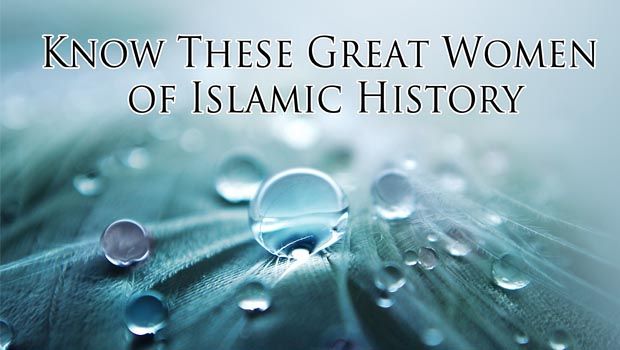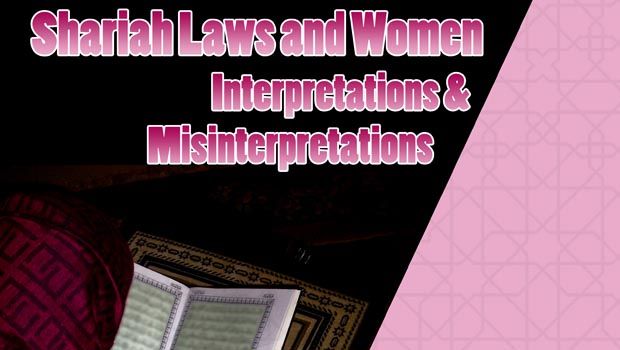In the Qur’an, Allah SWT declares:
“For Muslim men and women, for believing men and women, for devout men and women, for true men and women, for men and women who are patient and constant, for men and women who humble themselves, for men and women who give in charity, for men and women who fast, for men and women who guard their chastity, for men and women who engage much in Allah’s praise; for them has Allah prepared forgiveness and great reward.”(Qur’an 33:35)
Our contemporary Muslim societies must bring about the reforms necessary to accord with the Islamic guidance about gender relations and the status and role of women in society
If one studies the Qur’an and the life of the Prophet (s) with no preconceived notions, one cannot escape the fact that the historical evidence from the life of the Prophet offers a remarkable contrast to our received or inherited cultures. Most glaring as an anomaly in our contemporary cultures is the perception and status of women as compared to what we see during the early days of Islam. This article will focus on the contribution of Muslim women in light of the historical record. Let us shed some light on their role and contribution to set the record straight.
Illustrious Muslim Women During the Era of the Prophet
- The person to whom the first compiled Mushaf of al-Qur’an was given to keep and preserve: Hafsah bint Umar (r)
- The narrator of the second largest number of hadith and a leading faqiha (jurisprudent): Ayesha bint Abu Bakr (r)
- The first Muslim after the Prophet was a woman: Khadija (r). The beginning of the Islamic society — the Ummah — began with the unconditional support and encouragement of this strong and devoted woman.
- The first woman of the Ummah to seek her own marriage: Khadija (r)
- The first businessperson to join the Ummah: Khadija (r). Before his prophetic mission, Muhammad (s) became an employee of Khadija (r). He used to report to her directly.
- The first shahid of the Ummah was a woman: Sumayyah bint Khabat (r)
Women were involved in the formation of the Islamic Ummah. Umm Ammara (r) was a participant in the second covenant of Aqabah. She was also the valiant defender of the Prophet in the battle of Uhud. She used a shield, then picked up a sword and killed an approaching enemy, receiving twelve wounds. She revenged her wounded son after he had been tortured by the followers of Musaylama. With her son, she participated in the battle under the leadership of Khalid ibn Walid and, despite the loss of an arm, she along with her son wielded their swords against Musaylama and killed him. Thus, we can see that women directly and fully participated in battle as warriors, not merely on the sidelines as support persons.
Umm Salam served as an advisor to the Prophet (s) when he (s) was at a loss at the conclusion of the Treaty of Hudaybiyya with Makkans in AD 628. After the conclusion of the treaty, which was perceived by the Muslims as thoroughly humiliating for their side, the Prophet ordered them to shave their heads and put themselves in a state of penitence. None of them responded to his call, which he repeated three times. Very distressed, the Prophet went back to the tent of his wife, Umm Salama, who had accompanied him. When she asked him the cause of his distress, he told her: “I ordered them three times to shave their heads, no one obeyed.” Umm Salama said: “Do not worry at all, Apostle of Allah, but you yourself shave your head and carry out the sacrifice.”The Prophet stood up, cut the throat of the camel destined for the sacrifice that he himself was to make, and shaved his head. His Companions, seeing him do this, spoke of it to each other, and all shaved their heads and sacrificed their animals (al-Tabari).
The woman to whom the Ummah is eternally grateful for her service during the hijrah: Asma bint Abu Bakr (r). She brought provisions to the Prophet and his companion in the cave.
Umm Salit (r) was an ansari woman who used to carry the filled water skins for the soldiers on the day of the Battle of Uhud (Bukhari: Vol. 4, #132).
Umm Sulaim (r) participated in the Battle of Khaiber (Muslim: Vol. II, Hadith # 3325). Anas (r) reported: I saw Aisha and Um Sulaim (r) rolling up their dresses so that I saw their leg-bangles while they were carrying water skins on their backs and emptying them in the mouths of the [wounded] people. They would refill them and again empty them in the mouths of the [wounded] people (Bukhari: Vol. 4: #131) Note: While Islam has dress codes, there is a practical allowance for unintentional exposure of what normally should be covered, in this case the leg-bangles.
The Prophet (s) said: “I entered Paradise and heard the sound of steps. I said: Who is it? They said: She is Ghumaisa (Umm Sulaim).” And in another report, he (r) said, “I was shown Paradise and I saw the wife of Abu Talha (Umm Sulaim) and I heard the noise of steps before me and, lo, it was that of Bilal”(Muslim: Vol. 4: #6011-6012).
During the Period of Khulafa-i-Rashidoon
Umm Hakim was married to a Sahaba Ikrama (r) who became shahid (died as a martyr). Upon receiving a proposal from Khalid ibn Saeed, she married him at the battlefield of Marjas-Safar. The next day while the walima (wedding feast) was going on, the Roman army launched a surprise attack. Khalid ibn Saeed became shahid in that battle. The fighting was heavy and at such a close distance that, according to Ibn Saad, all that could be heard was the clash of sword on sword. Umm Hakim fought all day, along with the other Muslims. She personally killed seven Roman soldiers in the daylong battle. Ibn Saad reports that in memory of martyred Khalid, she was using the spiked end of the tent stake in which they had consummated their marriage. It was with this spear-like heavy stake that she killed the seven Romans. While she fought, she was wearing a chain armor battle shirt. According to the historians, the battle took place in Muharram in the 14th year of the Hijrah calendar, during the caliphate of Hadhrat Umar (r).
Umar’s (r) wife, Umm Kulthum, took a socially active role. She was the daughter of Fatima (r) and served as a midwife. Umar(r) said: “Allah has brought an opportunity of great merit in your path.” When the labor pain of a Muslim lady was mentioned, she responded: “I am ready to attend her, if it pleases you.”
Umm Haram participated in the first sea battle for the control of Cyprus during the period of Uthman (r). She sought the honor of this participation directly from the Prophet (s) himself (Sahih al-Bukhari: Vol. 5, Book of Jihad, Hadith #129; Muslim: Vol. III, #4699).
Men and Women are Ideologically Co-equal
The background of verse 35 in Surah Al-Ahzab, quoted in the beginning of this article, is found in the following ahadith:
“Some women came to the wives of the Prophet and said to them: ‘Allah has spoken of you [the Prophet’s wives] by name in the Qur’an, but he has said nothing about us. Is there then nothing about us that merits?” (Tafsir at-Tabari: Vol. 22)
Umm Salama (r), wife of the Prophet (s), reported: “I had asked the Prophet why the Qur’an did not speak of us as it did of men. And what was my surprise one afternoon, when I was combing my hair, to hear his voice from the minbar. I hastily did up my hair and ran to one of the apartments from where I could hear better. I pressed my ear to the wall, and here is what the Prophet said:
O people! Allah has said in his book: “For Muslim men and women, for believing men and women,for devout men and women, for true men and women, for men and women who are patient and constant, for men and women who humble themselves, for men and women who give in charity, for men and women who fast, for men and women guard their chastity, for men and women who engage much in Allah’s praise; For them has Allah prepared forgiveness and great reward…. Verse 35 of Ahzab”. (Tafsir at-Tababi, Vol. 22)
The revelation of this verse was a revolutionary statement. It shows a genuine concern about gender issues — at that time and for all time. This verse can also be understood as a component of the Islamic charter for a society where men and women are ideologically co-equal. Their responsibilities and duties, as well as specific rights, may somewhat vary, but as human beings they are equal from the Islamic viewpoint. Our contemporary Muslim societies must bring about the reforms necessary to accord with the Islamic guidance about gender relations and the status and role of women in society.






